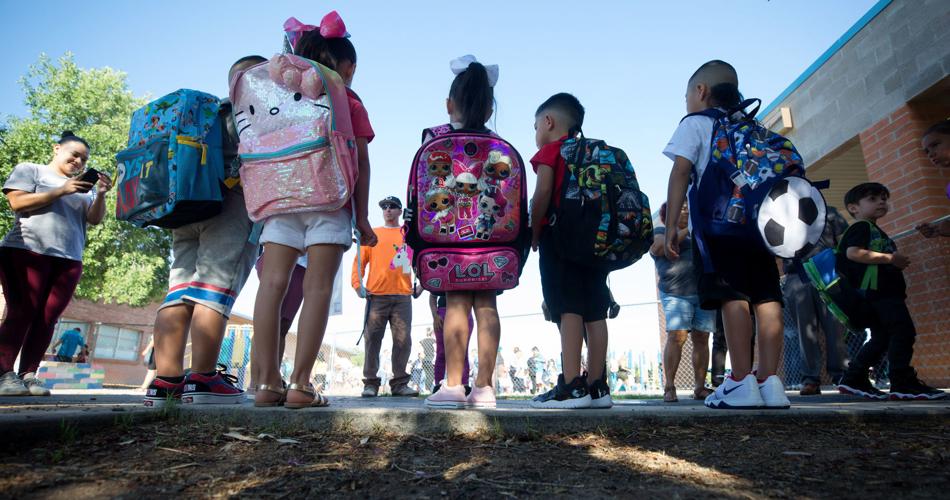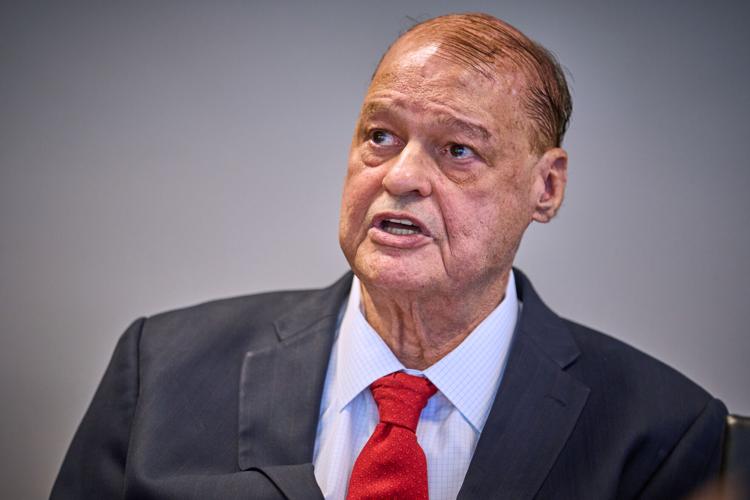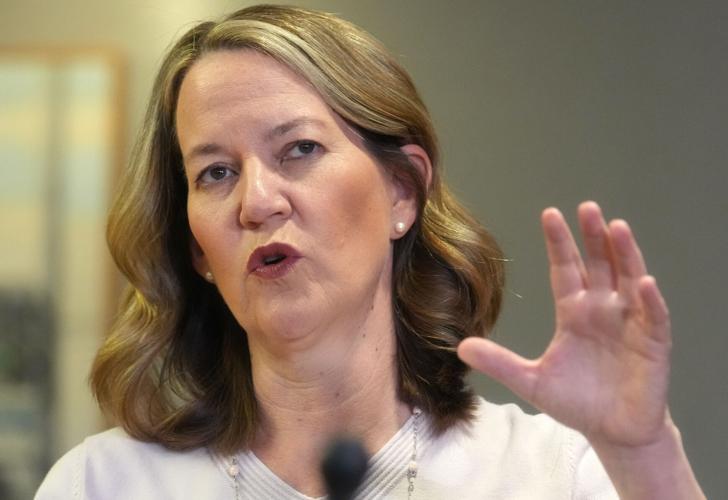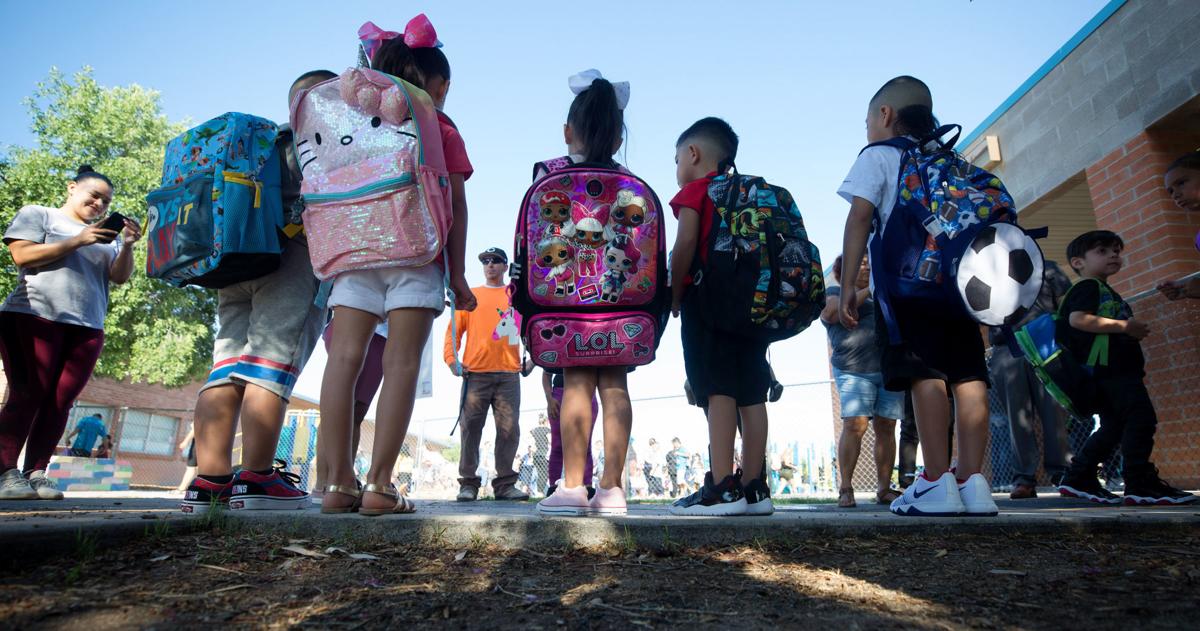The state’s top prosecutor is warning parents that pulling their children out of public schools to take advantage of the new universal voucher program could make them victims of bias with no legal recourse.
In a statement Monday, Attorney General Kris Mayes said various state and federal laws that prohibit discrimination on the basis of race, religion, national origin and sex, including sexual orientation and gender identity, may not apply in private and parochial schools. That would leave parents without legal recourse, she said.
Mayes, an opponent of universal vouchers, also made specific mention of federal laws that guarantee students with disabilities a free and appropriate education, as well as laws that ensure parents have access to their children’s educational records. She said these, too, do not protect students in private schools.

Mayes
“It’s important for Arizona families to be aware of the rights they give up when they leave the public school system,’’ said Mayes, a Democrat.
Her statement drew immediate fire from Arizona Superintendent of Public Instruction Tom Horne, a Republican, who said Mayes is misleading parents.
Horne defends system
Horne said the voucher system — formally known as empowerment scholarship accounts — provides private schools with the same amount of money for special education students and students with disabilities as they would get at a public school.
Horne acknowledged, however, that, unlike public schools, private schools are not required to accept those students in the first place. But if they do accept them, he said, they are making a commitment to meet their special needs.
In the meantime, he said, no one’s rights are being trampled.
“It’s nonsense to say they’re giving up their rights because they may not be admitted,’’ Horne said. In essence, he said, it’s a waiver of their rights under laws. “They’re not going to give up that right unless they are admitted,’’ he said.
Asked what happens if the school doesn’t live up to its promises, Horne said, “The parents are the judges of whether a school is doing an appropriate job” and retain their ability to move their child elsewhere.
As to broader issues of discrimination, Horne said Mayes may be correct. He said a religious school that is sponsored by a church cannot be made to teach beliefs that are contrary to its doctrine.
But Horne, himself a former state attorney general, said he believes that any school, private or otherwise, that refuses to admit students solely because of their race would still find itself in legal trouble.

Horne
Mayes’ release also drew derision from Republican Abe Hamadeh, who narrowly lost the race for attorney general last year and who still is trying to get a court to overturn the election results.
“This is propaganda from the illegitimate Mayes who is trying to intimidate parents from participating in empowerment scholarship accounts,’’ he said in a written statement.
But Richie Taylor, Mayes’ press aide, said it is simply an effort to inform parents who, until now, have had no reason to familiarize themselves with vouchers.
Vouchers expansion
The original program started out as a way to help students whose special needs could not be met in public schools.
A challenge to its legality was rejected by the Arizona Supreme Court in 2011. The justices said it does not violate constitutional provisions barring aid to private and parochial schools because the money goes not from the state to the schools but instead to the parents who choose how to spend it.
Since then, the Republican-controlled Legislature has enacted a series of expansions to vouchers availability, which included to foster children, children of those in the military, home-schooled students, students living on reservations, and students attending any school rated D or F.
Last year, Republicans in the Legislature and Gov. Doug Ducey opened the voucher program to any of the 1.1 million students in public schools.
That has led to claims by Gov. Katie Hobbs, a Democrat who took office in January along with Mayes, and Democratic lawmakers that the program siphons off money from public education and will cost hundreds of millions of dollars more than estimated.
With GOP lawmakers unmoved and no apparent legal recourse, foes, including Mayes, have turned their attention to how the program is set up and how it is administered.
Students with special needs
Mayes’ news release Monday is designed to give parents some second thoughts before moving their children — particularly those with special needs — out of public schools.
“Families should not be denied admission or kicked out of private schools because of a child’s disability,’’ Mayes said in her statement. “To make matters worse, private schools often refuse to share the educational records behind those decisions.’’
Federal laws governing the rights of parents and children in these matters don’t apply to private schools, she said.
Horne said that ignores the fact it was the students with special needs who became the first voucher recipients more than a decade ago. He said that shows private schools are willing and able to provide for their educational needs.
Still, Horne acknowledged, the law does allow private schools to “cherry pick,’’ deciding which students they want to accept and which they turn away, an option that does not exist for public schools. The schools chief sidestepped the question of whether that is proper.
“That’s a legislative question,’’ Horne said. “My job is to implement what the Legislature did. And they decided to go the way they went.’’
Discrimination issues
The issue of whether, beyond a student’s disability, a school can discriminate is one that both Mayes and Horne conceded may not be clear-cut.
“Students who face discrimination based on a protected class other than disability may be covered under state and federal public accommodation anti-discrimination laws,’’ said Taylor, Mayes’ press aide. But he also said parochial schools and religious institutions may be exempt.
“Protections under these circumstances are fact specific, based on the type of educational institution, the allegations of discrimination, and the specific protected class at issue,’’ Taylor said.
Horne said it was a legislative decision to put language in the law saying schools that accept vouchers do not need to alter their creed, practices, admissions policy or curriculum. But he said he does not believe that gives these schools carte blanche to do what they want.
“I would think if they said, ‘No Black students need apply,’ we would find a way to say they are violating the civil rights law,’’ Horne said.
Get your morning recap of today's local news and read the full stories here: http://tucne.ws/morning







